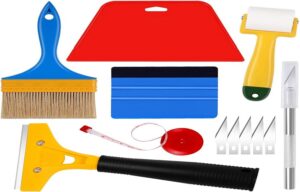The Handyman’s Guide to Must-Have Hardware Supplies

Any handyman knows that having the right tools and hardware on hand is essential for tackling both basic repairs and larger projects around the home. While every tool has its place, there are certain basic hardware supplies that no handyman should be without.
Tools
Screwdrivers
A quality set of screwdrivers is non-negotiable for handymen. Look for both Phillips and flathead screwdrivers in a variety of sizes. The most useful sizes are #1 and #2 Phillips along with 1/8 inch and 1/4 inch flathead models. Screwdrivers with magnetic tips can be especially helpful in retrieving dropped screws in tight spaces and awkward angles.
Hammers
A versatile 16 oz claw hammer with a comfortable gripping handle surface is ideal for most basic hammering tasks. Having a steel head helps prevent chipping or mushrooming of the contact area over years of use. Supplement this with a small tack hammer for precision work like crafts, furniture assembly, and hobbies where heavy blows would damage the workpiece. A rubber mallet comes in handy for applying directed force without damaging finished surfaces.
Pliers
Needle nose, slip joint, groove joint and linesman pliers all have functionality that overlaps, but each style serves certain purposes especially well. It’s good to have all four styles on hand for versatility in gripping, twisting, bending, cutting, and crimping tasks. Make sure pliers fit comfortably in your hand when gripped and don’t have ridges that dig into fingers when pressure is applied.
Wrenches
An adjustable wrench plus a full set combination wrenches provide the capabilities to work with most nuts, bolts, and fittings. The adjustable jaw capacity suits light duty tasks, but solid combination wrenches allow for applying greater torque without rounding off fastener heads. Box end wrenches are especially useful where space is tight since they can be slid onto the bolt without needing to swing in an arc. An Allen wrench set covers the hex fasteners commonly found in furniture, bicycles, and fixtures around the home.
Fasteners and Anchors
Nails
Keep an assortment of common nails on hand: finishing nails, brad nails, upholstery nails, roofing nails. Match nail length, thickness, and strength to the materials being fastened together. For instance, thick hardy nails for outdoor fencing and trim projects versus thin nails for hanging pictures inside.
Screws
Wood screws, sheet metal screws, and drywall screws are essential. Pay attention to screw length, head style (flat, oval, hex washer, etc.), thread pitch and material compatibility. Proper drive type (Phillips, square, Torque, etc.) and fit reduce chance of driver slippage or damage to screw heads and recess areas. Consider higher grade impact-rated versions for use in drill/drivers for exterior, high load, and high vibration applications.
Bolts
Hex head and carriage bolts are very versatile for connecting, extending, and framing structural projects. The people at SPAX say that lag bolts provide extra grip when fastening into solid wood with their spiraled threading. Fender washers effectively distribute load to prevent tear out around the shank. Grade markings signify bolt strength with most residential tasks covered by Grade 2 through Grade 5.
Anchors
A variety of toggle bolts, hollow wall anchors, sleeve anchors provide solid attachment points for heavy objects on substrates where screw threads alone won’t suffice. This includes drywall, concrete, and brick where the substrate material fails before a properly set anchor.
Conclusion
Having these fundamental hardware supplies readily available enables a handyman to perform common repairs and renovations with confidence and efficiency. With the essentials covered both in his workshop and portable toolbox, the well-equipped handyman tackles problems as they arise and keeps the home in top shape for the long term.






